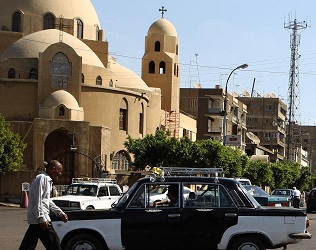CAIRO: Governorates nationwide are coordinating with educational institutions and water companies to take precautionary measures against the H1N1 virus as the number of cases reached 749 in Egypt.
The Ministry of Health reported six new cases Thursday according to their official spokesman Abdel Rahman Shahin, who indicated that five of the new cases were Egyptians and one of them had recently arrived to Egypt from Saudi Arabia where he was on Umrah pilgrimage.
As for the other four Egyptian cases, three are related to previous cases and one new case. However, the sixth case was that of a British citizen who recently arrived from England.
On Wednesday, the Ministry of Health reported five cases, three of them Egyptians returning from Saudi Arabia, where four new deaths from H1N1 flu were reported.
In a related note, Shahin said that number of recovered cases in Egypt is 641. He added that the rest are undergoing treatment and are in good condition.
The Supreme Council for Private Higher Education Institutions issued emergency rules to decrease the number of students per classroom in all private education facilities.
Accordingly, students will be divided among more classrooms and classes will continue until 8 pm.
The council also indicated that it will provide all classes with proper ventilation.
The new regulations were outlined after a meeting between the council and Minister of Higher Education Hani Helal on Monday.
Moreover, Cairo Governor Abdel Azim Wazir announced Tuesday that the governorate is working on gathering data on all schools that use water reservoirs. The governorate stipulated that water companies in Cairo examine and sanitize the water in the tanks before the start of the academic year at the end of this month.
At the same time the Chairman of the Cairo Water Company Mohamed Abdel Rahman announced that the company is currently working on a strategy to examine and purify all water tanks in Cairo, including private ones.
However, Abdel Rahman added that citizens will be charged for the tests and purification processes, whether instantly or through their water bills.
In a related note, according to the Dar El Ifta website, Egypt’s Grand Mufti, Ali Gomaa said that he is currently mulling the idea of cutting the number of female pilgrims staying at Mena mountain, one of the locations that Muslims have to visit and stay at for at least one day and maximum three days during hajj, in order to decrease the crowd in that area and hence decrease the spread of H1N1.


